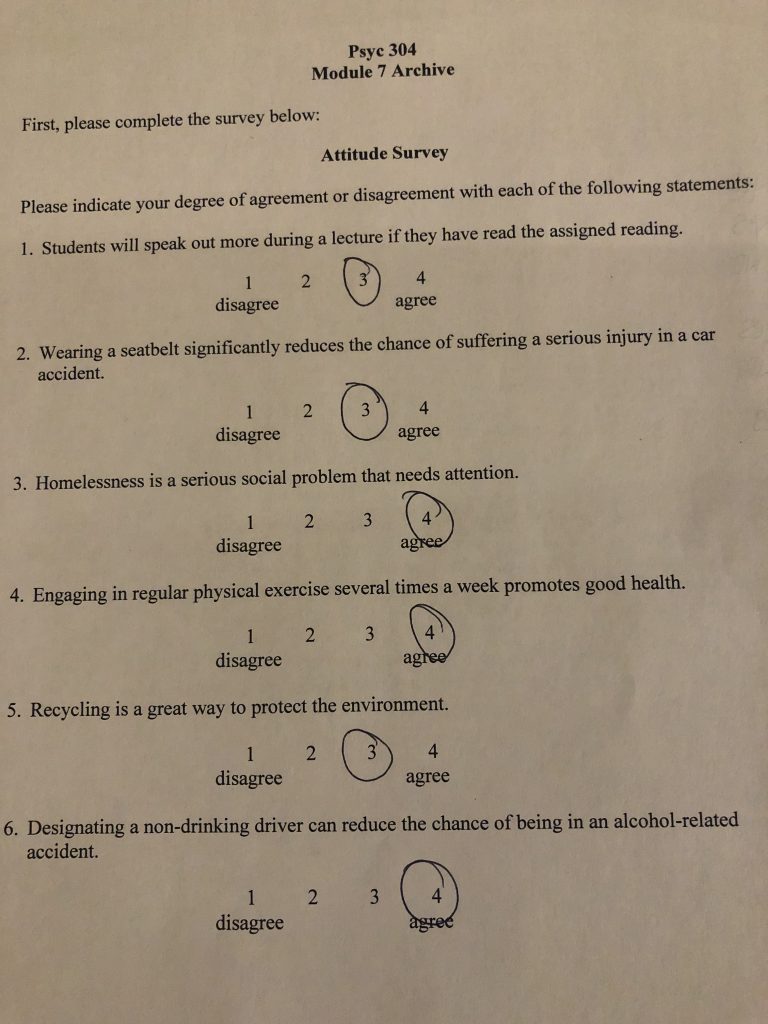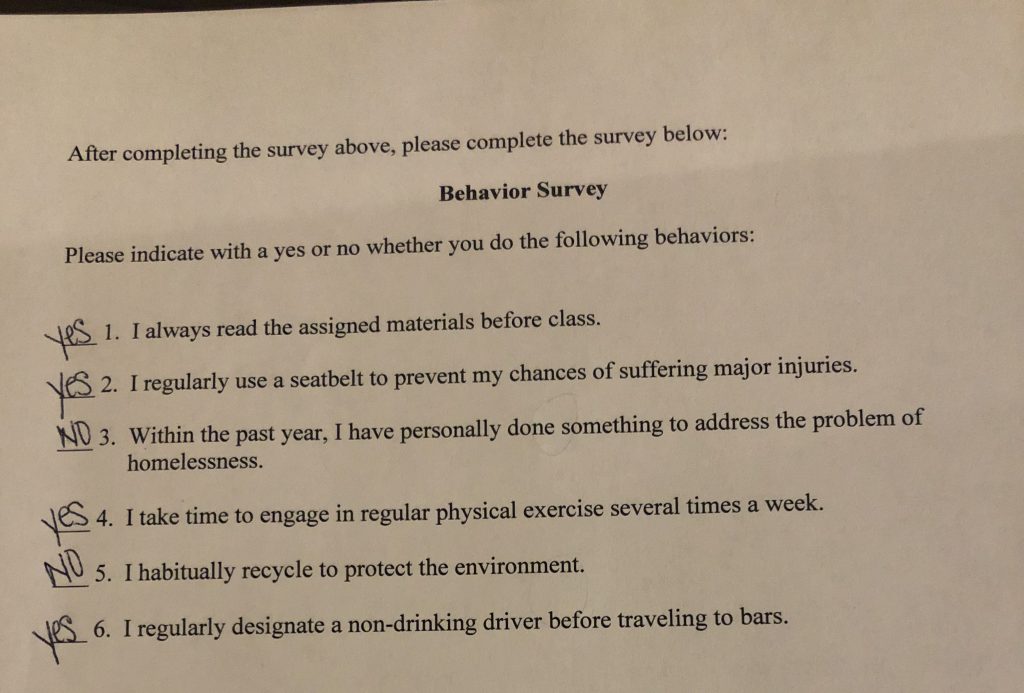

In the field of psychology, cognitive dissonance can be defined as the mental uncertainty that one may feel when possessing contradictory beliefs, ideas, or values. Generally speaking, as we grow up, we tend to hold confidence in our core values. And when valid information is presented that counteracts these values, it challenges what we thought we always knew. In a related activity, I filled out a survey of my attitude towards certain topics, including wearing a seat-belt in the car, recycling to prevent harm to the environment, and taking measures to educate myself on the homeless epidemic. In nearly all of these subjects, I thought it was important to pay attention to my actions to prevent any additional harm. However, when it came to recognizing my behaviors that align with these values, I found that I did not necessarily take direct action to address the problem of homelessness or consistently recycle. This activity was helpful because it was interesting for me to see where I stood in regards to small things that I thought I was passionate about. But it was clear that I wasn’t doing enough to force a positive change within myself and those around me. For example, I am from New York City where the homeless epidemic is extremely horrific. Everyday, I walk past beggars on the streets and those sleeping on the sidewalks. While it is never a pleasant sight for me to see, it’s almost as if it was a part of my daily routine, and I can almost say I stopped paying attention to them. It makes me sad to recognize that my thought process has come to this point, but this activity made me realize that I can be more proactive in my beliefs. I believe taking a second to evaluate your attitudes vs your behaviors can be a beneficial wake-up call for anyone, as it effectively contributes to our personal growth.